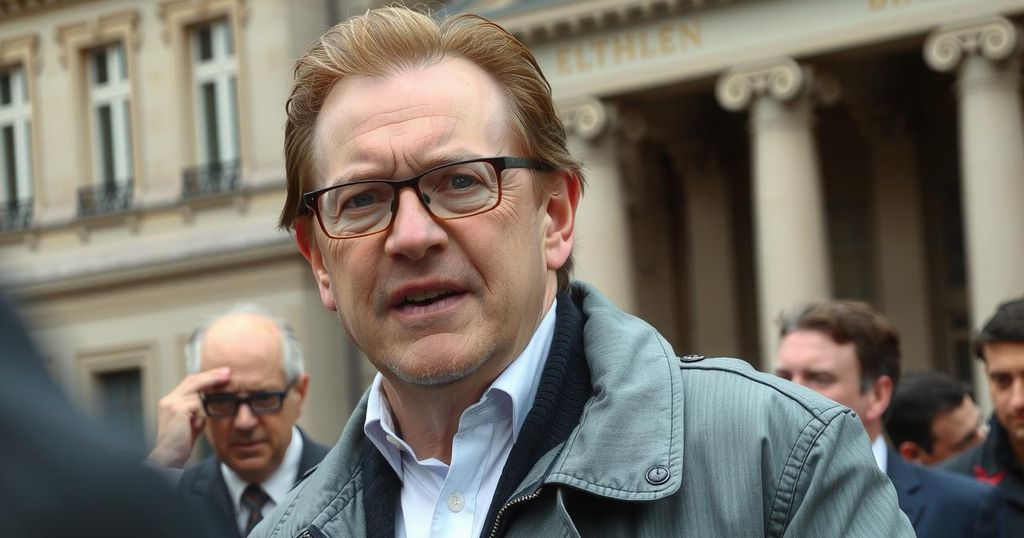Elon Musk’s Controversial Influence on Germany’s Upcoming Elections

Elon Musk is accused of attempting to influence Germany’s national election by endorsing the AfD party, deemed far-right. His comments suggest the AfD represents hope for the country, prompting significant backlash from various political figures who criticize his motives as financially driven and his influence as threatening democracy.
Elon Musk, the CEO of Tesla, is under scrutiny for attempting to influence the forthcoming German national elections scheduled for February. A government spokesperson confirmed this allegation, acknowledging Musk’s right to express his opinions while emphasizing that such freedom can sometimes lead to what she referred to as “the greatest nonsense.” Musk’s endorsement of the far-right Alternative for Germany (AfD) party in an opinion piece published in the German newspaper Welt am Sonntag has sparked considerable political controversy. He remarked that the AfD represents the “last spark of hope” for Germany, despite the fact that the conservative Christian Democratic Union currently leads the polls. Musk’s statements have elicited a strong political backlash, with comments likening his actions to those of Vladimir Putin, aimed at destabilizing democracy in Germany.
Lars Klingbeil, leader of the ruling Social Democrats, accused Musk of attempting to support anti-democratic forces, which could lead to chaos within the nation. Another Social Democrat, Saskia Esken, alleged that Musk’s motives are purely financial, seeking personal enrichment through his endorsements. Friedrich Merz, the lead candidate for the Christian Democrats, criticized Musk’s comments as “intrusive and presumptuous,” warning that the AfD’s opposition to the European Union could have dire economic consequences for Germany. Merz reminded that the AfD had been one of the most vocal opponents of Elon Musk’s Tesla factory initiative in Germany, which commenced operations in 2022.
Despite the backlash, Elon Musk has not publicly responded; however, he did share a post from AfD’s chancellor candidate Alice Weidel, who has sought to leverage his opinion to bolster her party’s campaign. Musk’s recent patterns of support appear to align closely with various European populist and right-wing politicians, including Nigel Farage and Giorgia Meloni.
In recent times, political movements across Europe have illustrated a significant rise in populist sentiments, with parties like the Alternative for Germany (AfD) gaining traction among certain voter demographics. Elon Musk, facing criticism for his overt political endorsements, is reportedly vocalizing his preferences in the German elections, an act considered by many as an attempt to wield influence over democratic processes. The German political landscape faces scrutiny as the elections approach, with traditional parties like the Christian Democratic Union trying to maintain their stronghold against the backdrop of rising far-right sentiments.
In conclusion, Elon Musk’s involvement in Germany’s political arena raises significant concerns regarding foreign influence in national elections. While freedom of expression is paramount, the implications of endorsing controversial political parties may destabilize established democratic norms. As the nation approaches its elections, the tensions between political leaders and Musk continue to highlight the complexities of modern political discourse in which economic interests and political activism intersect, potentially shaping outcomes in significant ways.
Original Source: www.politico.eu





